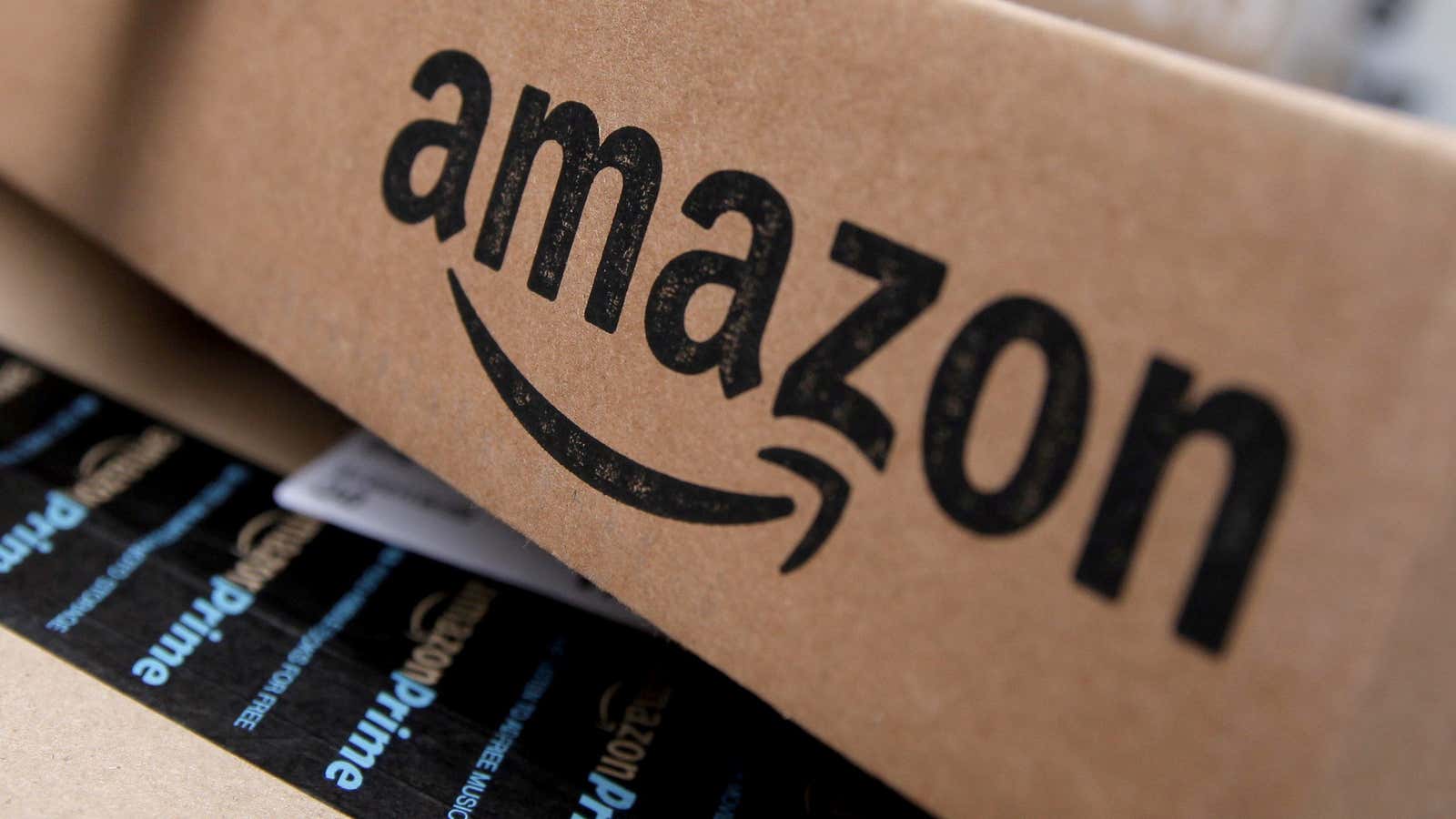As of this writing, Amazon’s share price is about $3,200, valuing the company at approximately $1.6 trillion. In fact, since the company’s IPO in 1997, only one stock has outperformed it.
Still, Amazon’s shares would be worth as much as $6,000 within a year if their valuation were in line with those of its big peers in the retail and consumer staples industries, according to a recent note to clients from investment bank Morgan Stanley. It just depends which measure you choose to judge what Amazon shares should be worth.
How best to gauge the right share price for Amazon has always been an open question, Brian Nowack, the Morgan Stanley analyst, said in the note. At different times, investors have looked to different measures to value the company’s stock, including comparing its share price to its revenue or to the total value of merchandise sold through the site. Figuring out the right measure isn’t simple because Amazon isn’t quite like the tech or retail giants it might be compared to. For years it sacrificed profit for growth in its retail business and steadily built out other income streams such as its Prime membership program, its advertising sales, and its cloud-computing platform, Amazon Web Services.
Now, though, its rapidly scaling profitability makes Amazon’s earnings a more useful figure to measure its share price against, Nowack argues. With that in mind, he looked at Amazon’s price-to-earnings growth, a measure that factors in a company’s share price, its expected earnings over a given period of time, and its outstanding shares of common stock.
How Amazon stock stacks up against big tech and retail peers
In that framework, at least, Amazon is trading at a discount relative to large tech, retail, and consumer staples companies, the note said. If Amazon’s shares were valued relative to its earnings growth similar to how other big tech stocks like Google or Microsoft are valued, their price would rise to about $4,500 within the next year. If its shares were valued more like other large retailers or consumer staples companies, such as Walmart or Coca-Cola, Amazon’s share price would hit $5,000 to $6,000 within a year.
The note makes the case, too, that Amazon justifies a higher price-to-earnings growth than the typical tech stock based on a variety of factors. Among them are its number of business lines, including retail, cloud-computing, advertising, logistics, healthcare, and more; the rising number of Prime subscribers; and the potential for its margins to fatten as it keeps growing.
Of course, just because investors might be justified in sending Amazon’s shares far higher, according to Nowack’s thesis, it doesn’t mean they will. While the company’s stock surged early in 2020, propelled upward by the e-commerce boom of the pandemic, it plateaued in the second half of the year and currently shows no signs of taking off again to the same degree.
In the meantime, Amazon has been rumored to be considering a stock split, though there’s really no good reason for the company to do that.
